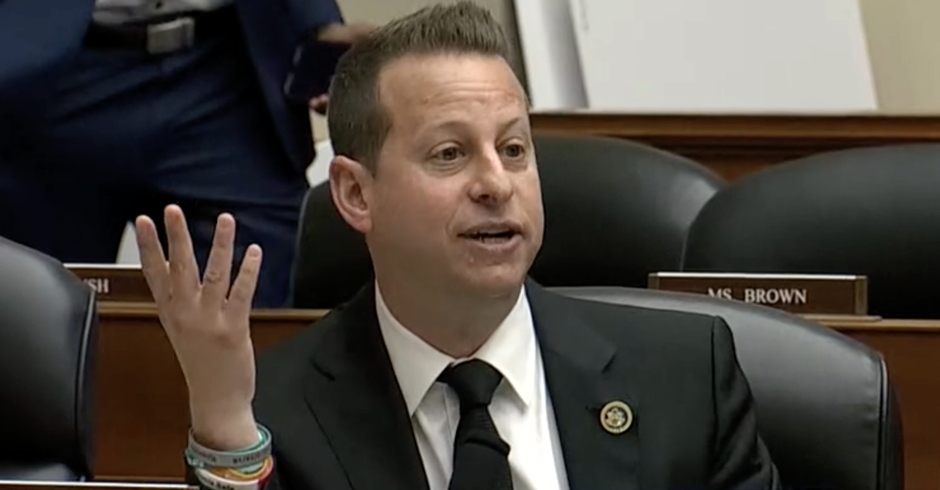OPINION
No, Elon Musk, ‘Cis’ Is Not a Slur

Twitter owner Elon Musk just announced that he considers “cis” and “cisgender” slurs. Usage of these terms on Twitter may result in suspension, he said. But, it may shock you to know, Musk is wrong. “Cis” and “cisgender” are not slurs, and the efforts to paint them as such come from anti-transgender activists.
“Repeated, targeted harassment against any account will cause the harassing accounts to receive, at minimum, temporary suspensions. The words ‘cis” or “cisgender’ are considered slurs on this platform,” Musk tweeted Tuesday evening.
Repeated, targeted harassment against any account will cause the harassing accounts to receive, at minimum, temporary suspensions.
The words “cis” or “cisgender” are considered slurs on this platform.
— Elon Musk (@elonmusk) June 21, 2023
READ MORE: Conversion Therapy Tied to Suicide Attempts by Transgender People, Massive New Study Shows
But “cisgender” and “cis” isn’t a slur—it’s merely the opposite of “trans.” “Cis-” is a standard latin prefix, meaning “on this side of.” It’s particularly common in geography, where it just means the same side as the speaker. For example, the region between the Jordan River and the Mediterranean Sea is called “Cisjordan”—”Transjordan” means east of the Jordan River, and was used as the name of a British protectorate in 1921. In chemistry, “cis-” is also used to talk about chemical compounds have atoms or groups that exist on the same side of a plane of symmetry.
“Cis-” was first used in regards to sexuality in a 1914 German book on sexology, however the word “cisgender” was first coined in 1994 on Usenet by Dana Defosse. Defosse at the time was a graduate student, and in an February 2023 article for Huffington Post, she said she was working on a paper about the health of trans teens. She needed a term for the opposite of transgender, and looked to chemistry for inspiration, and landed on “cisgender.”
“It seemed like a no-brainer. I had no idea that hitting ‘enter’ on that post would start an etymological time bomb ticking,” she wrote.
The term (and its sister term cissexual—the opposite of the then-common term “transsexual”) was popularized in the 2007 book Whipping Girl by artist and activist Julia Serano, and “cisgender” eventually entered the Oxford English Dictionary in 2015.
Critics like Musk often say they object to being “labelled,” but people are labelled every day, and it’s not always a value judgement. Hell, “man” or “woman” are labels, and Musk would likely not object to being called a “man.”
Defosse and others point out that those calling “cis” or “cisgender” a slur usually object on grounds of “I’m not cis, I’m normal,” defeating the whole purpose of the value-neutral term. Or in other words, as Twitter user @JinkiesJerrica puts it, “transphobic bigots say ‘cis is a slur’ because they have always used ‘trans’ as a slur”.
transphobic bigots say “cis is a slur” because they have always used “trans” as a slur
also, “cis” isn’t a slur because cisgender people aren’t discriminated against legally, institutionally or socially, on the basis of being cisgender https://t.co/tqox3KnVJ8
— The Hottest Jerrica You Know 😘 (@JinkiesJerrica) June 21, 2023
But as “trans” isn’t a slur, “cis” isn’t either. They’re mere descriptors, with clear linguistic pedigrees—and above all, they’re just plain useful terms when you’re talking about trans issues. It’s the very same issue Defosse ran into in 1994; if we can’t use the word she helpfully coined—what else is there?
Some go for “biological women/men,” but, last time I checked, transgender people are, in fact, biological creatures, just like cisgender people. (I will happily retract this if it turns out that all transgender people are revealed to be, and have always been, robots created in factories out of silicon and steel.)
“Genetic women/men” is another proposed option. After all, we’re taught in high school that men have XY chromosomes and women have XX. But as it turns out, biology is messy. Between 0.02% and 0.05% of people are born intersex—meaning that their sexual characteristics don’t neatly fit into “boy” or “girl”. Some women are born with XY chromosomes, but the male characteristics aren’t expressed—and some women in this situation can even give birth, according to a study by Claus Højbjerg Gravholt, a clinical professor in the Department of Clinical Medicine of Aarhus University.
Just use “cis.” It’s the easiest and clearest way to make the distinction. I’m cis and I’m proud—at least, as proud as one can be over something that I had absolutely nothing to do with and face absolutely zero oppression over.
Enjoy this piece?
… then let us make a small request. The New Civil Rights Movement depends on readers like you to meet our ongoing expenses and continue producing quality progressive journalism. Three Silicon Valley giants consume 70 percent of all online advertising dollars, so we need your help to continue doing what we do.
NCRM is independent. You won’t find mainstream media bias here. From unflinching coverage of religious extremism, to spotlighting efforts to roll back our rights, NCRM continues to speak truth to power. America needs independent voices like NCRM to be sure no one is forgotten.
Every reader contribution, whatever the amount, makes a tremendous difference. Help ensure NCRM remains independent long into the future. Support progressive journalism with a one-time contribution to NCRM, or click here to become a subscriber. Thank you. Click here to donate by check.
 |

























